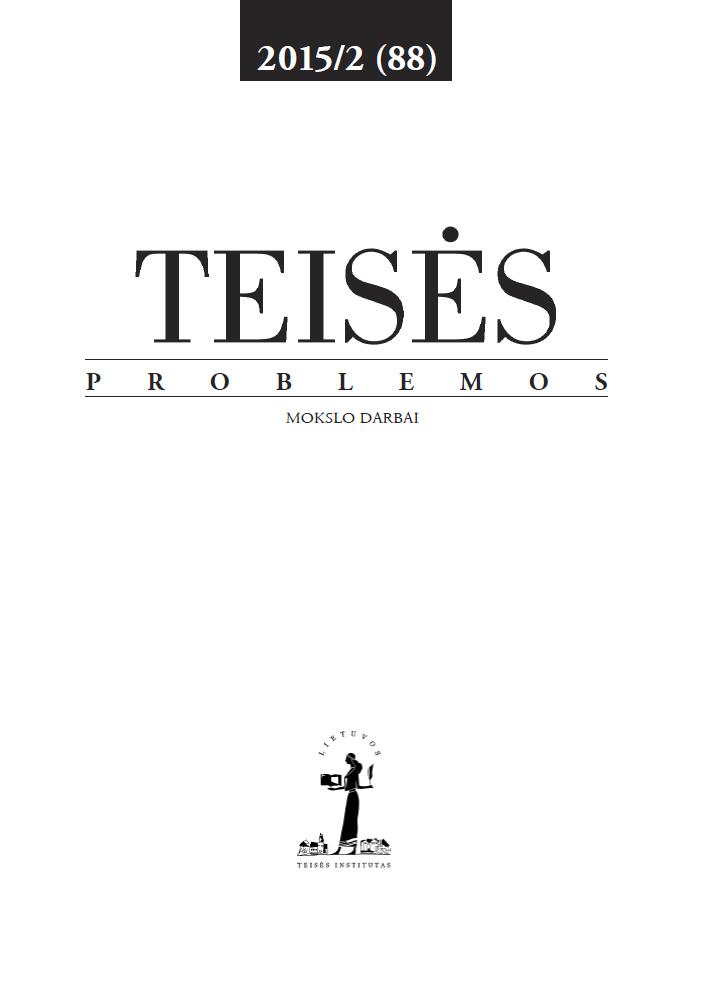Baudžiamosios ir mokesčių teisės sankirta: atsakomybė už neteisėtą praturtėjimą ir non bis in idem principas
Crossroads of Criminal and Tax Law: Liability for Illicit Enrichment in The Context of Non Bis In Idem Principle
Author(s): Skirmantas BikelisSubject(s): Criminal Law, Law on Economics
Published by: Lietuvos teisės institutas
Summary/Abstract: The paper discusses the issues of application of the non bis in idem principle at the crossroads of tax and criminal liability. The inspiration for the discussion came from the recent case of the Supreme Court of Lithuania – Marijampolė case. The Supreme Court of Lithuania upheld the acquittal of a person who has been fined by tax authorities and later charged for illicit enrichment. The Court found a violation of the non bis in idem principle and regarded it as one of the definite grounds for the acquittal.First, the article explores the essence of the principle non bis in idem – the goals of the principle and possible legal and social consequences of its implementation or non-implementation. The analysis of the essence of the principle serves as methodologic background for further evaluations of different interpretations of the principle in the practice of the European Court of Human Rights and the Supreme Court of Lithuania.Secondly, the article explores and puts into structural framework rich and very dynamic practice of European Court of Human Rights. The Court has made major shifts in its interpretations of the principle – from deprivation of tax proceedings of protection of the Convention in Ferrazzini case to putting back the tax proceedings under the cover of the Convention in Jussila and subsequent cases.The article also shows the peculiarities of the tax proceedings comparing to both criminal and administrative proceedings and consequently supports the recent flexible attitude of the ECHR where on one hand the tax proceedings are accepted into the field of criminal proceedings in the sense of the 6th Article of the Convention, but on the other hand the procedural guaranties are not being applied in full extent. The peculiarities of the tax proceedings also justify flexible solution of infringements of non bis in idem in the situation of concurrence between tax and criminal proceedings.The author argues that illicit enrichment and tax infringements do not constitute “the same offence” (idem) and therefore principle non bis in idem could not be relevant in the Marijampolė case. Furthermore the Court failed to acknowledge differences between the tax and administrative law infringements and thus established ill-founded precedent by referring to the termination of criminal proceedings as the proper solution of double sanctioning situation and consequently upholding the acquittal in the criminal case.
Journal: Teisės problemos
- Issue Year: 2015
- Issue No: 88 (2)
- Page Range: 54-69
- Page Count: 16
- Language: Lithuanian

